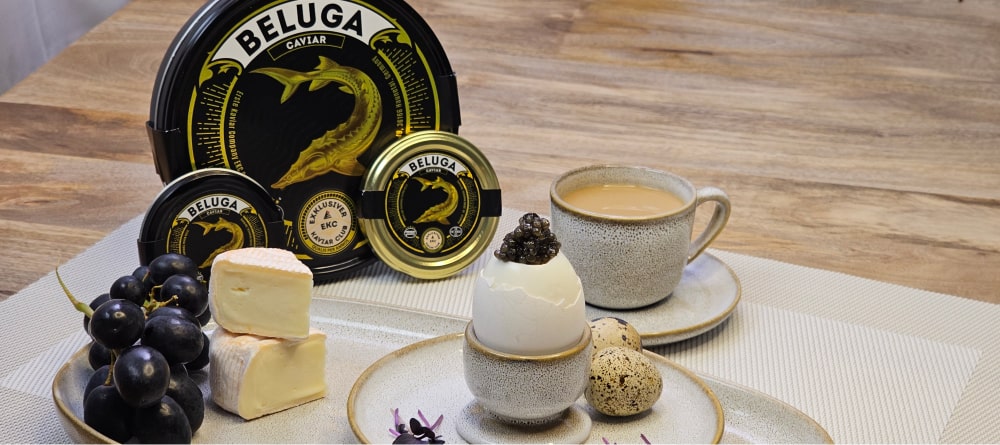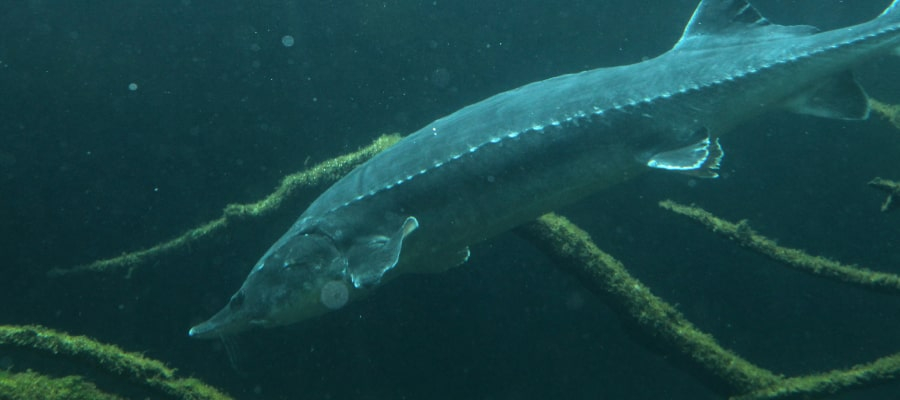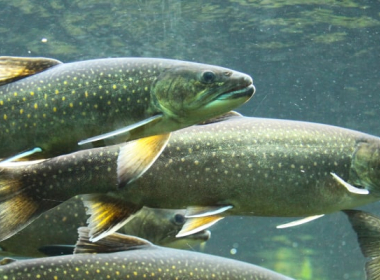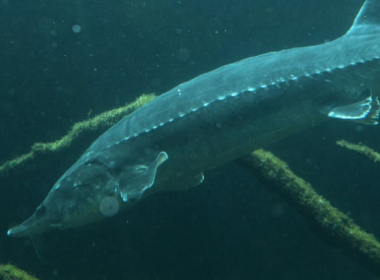Beluga is one of the most legendary, valuable and rarest fish in the world, a true record holder in every aspect and the source of caviar that is more expensive than gold! It lived in the time of dinosaurs on Earth and survived those mighty giants, but it could not withstand humans: through reckless exploitation of natural resources, humanity has driven this irreplaceable fish to the brink of extinction. Today only a few specimens remain in the wild, and for commercial use, it is bred on aquafarms.
The story of a vanishing giant
Beluga is the oldest sturgeon and one of the oldest living fish, with a history dating back over 200 million years. Just a hundred years ago, the sturgeon family dominated many other species, and the beluga was among the most common. Today, the few remaining representatives of this species are internationally protected, and the capture of beluga is banned worldwide.
The beluga's habitat spans the Black Sea, the Sea of Azov, the Caspian Sea, and the Adriatic. The beluga is a migratory fish, spending most of its life in the sea but migrating to rivers to spawn. In the past the main spawning grounds for beluga were the Dnieper, Danube, Dniester, Don, Kuban, and Volga rivers. However, the construction of dams and hydroelectric power plants has deprived the fish of its natural spawning grounds. The uncontrolled caviar trade, where the fish were killed, also significantly reduced their numbers.
Today, “domesticated” beluga is bred on aquafarms, but breeding them is very costly, as females only become sexually mature at the age of 18 to 27 years. The caviar from farmed fish is obtained using the gentle "milking" method.
Beluga – the gigantic record holder
An astonishing trait of beluga is its continuous growth throughout its lifetime, which can last over a hundred years. There are reports of catches of specimens up to 9 meters long and weighing up to two tons. One can easily imagine the danger these giants posed to navigation and fishing in ancient times when they migrated to rivers to spawn. The caviar makes up about 25% of the females' body weight. At the beginning of the last century, centenarian beluga females reached a length of 5 to 6 meters and a weight of around one ton. Nowadays, they rarely exceed 2.5 meters in length and typically weigh between 70 to 125 kg, with the oldest specimens reaching up to 200 kg.
Like all sturgeon species, the beluga is a predatory fish, feeding on mussels, herring, gobies, anchovies, other small fish, and even baby seals. This voracious giant can only survive in clean waters with an abundant food supply. Its presence in a body of water is an excellent indicator of the ecological purity and health of the ecosystem.
Gastronomic characteristics of the beluga
Beluga meat is predominantly white, quite firm, and does not fall apart when cooked. It has an especially refined taste with a low fat content of only 7-9%. This delicacy fish is traditionally used to make balyk, smoked or dried. Fresh meat is also shock-frozen to later prepare beluga kebabs and the famous beluga fish soup.
Beluga meat – a source of health
Beluga meat is composed of 20% easily digestible protein, with no carbohydrates at all. Additionally, this valuable protein product contains:
-
Vitamins: A, C, E, D, PP, B1, B2, B4, B5, B6, B9;
-
Micro- and macronutrients: potassium, phosphorus, sodium, magnesium, calcium, iron, zinc, fluorine, and molybdenum;
-
A complete set of essential amino acids, including the indispensable methionine;
-
Omega-3 fatty acids, which have antioxidant and anti-inflammatory effects.
The product is low in calories: 100 grams of this delicacy provides about 150 kcal. Nutritionists recommend including beluga meat in the diet to:
-
Strengthen the cardiovascular, nervous, and digestive systems, as well as bone and muscle structures;
-
Improve the immune system;
-
Enhance the condition of skin and hair;
-
Rejuvenate and regenerate the body overall.
Beluga caviar – a priceless treasure

Beluga is definitely the most extraordinary among sturgeons, but it gained fame mainly through its caviar, which has significantly contributed to the decline of this species.
Beluga caviar, the dream of true gourmets, is considered the most expensive and rarest food in the world. Traditionally referred to as "black" caviar, as with other sturgeon species, this is just a convention. The eggs of younger fish are dark gray with a silvery sheen and have a diameter of 2.5 to 3 mm, making this caviar the most affordable. As the female ages, the eggs grow up to 4 mm, and their color changes to a brownish hue. In fish older than 70 years, the eggs can grow up to 5 mm and take on a light brown color with a golden shimmer. Such caviar is referred to as "golden" and is especially valuable not only for its color but also because its price often exceeds that of gold by weight. Worldwide, there are only a few dozen fish over 75 years old that produce caviar with these characteristics.
The uniform, elastic eggs with a slightly oily surface are crumbly in mass. Their thin, delicate skin bursts easily with gentle pressure, creating a “melting effect” on the tongue. Without a doubt, it is worth trying beluga caviar – if only for its unique taste: mild, creamy, nutty, with a slight bitterness and a long, salty aftertaste.
Beluga caviar from IKRiNKA will elevate your festive table and underscore the refined taste and high status of the hosts.




